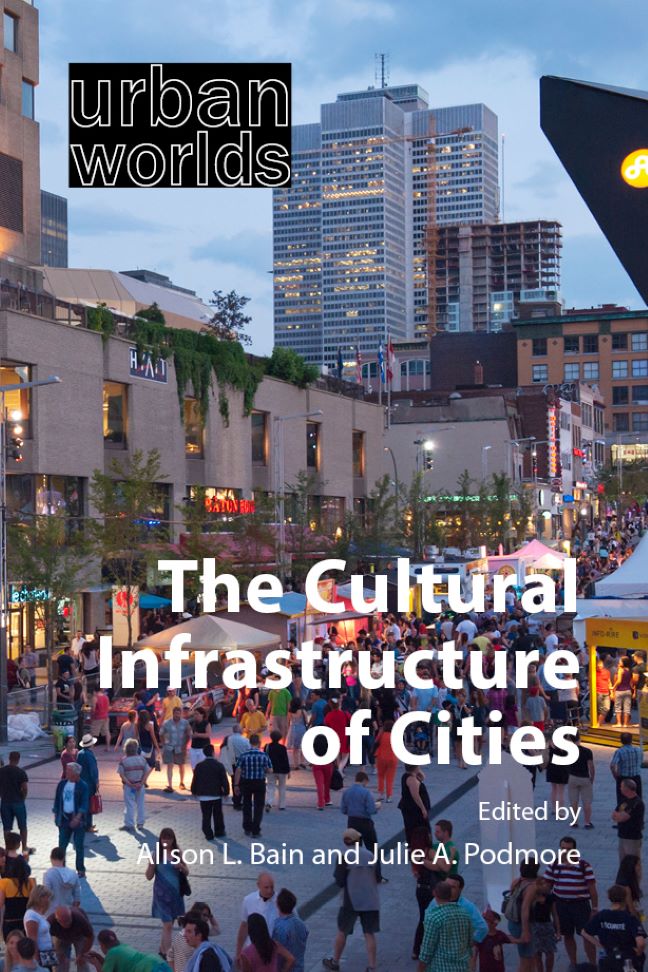16 - Conclusion: reconfiguring urban cultural infrastructure
Published online by Cambridge University Press: 23 January 2024
Summary
INTRODUCTION
Infrastructure is definitive of cities, intimately embedded in their constant change – their expansion and densification, their sprawl and contraction, their construction and decline (Melosi 2020). In addition to reconfiguring energy, water, sewage, solid waste, transportation and communication systems to persistently address complex societal issues (e.g., climate crisis, environmental pollution, deepening inequalities and exclusions, economic decline and privatization) and reshaping urban futures, infrastructure is also cultural. Over a decade of interdisciplinary scholarship has investigated the centrality of urban infrastructure to the transformation of cities demonstrating how “direct user involvement” in its malleable networks (Furlong 2010: 47) actively shape the extent to which residents can participate in urban life (Baumann & Yacobi 2022). Despite offering technology-and actor-focused explanations of infrastructural capacities and entanglements (Rutherford 2020; Rutherford & Coutard 2014; Silver 2014b), such research has largely neglected the cultural sector. Even as more recent scholarship attends to the palimpsest of socio-technical layers that rhythmically persist across time and space within systems (Monstadt 2022) – the “heterogenous configurations” of “different coverage, technologies, operations, logics and ownerships” (Lawhon et al. 2018: 723) that reinforce the longue durée of infrastructure choices (Moss 2020) – culture remains underexamined.
By focusing on the cultural infrastructure that supports practices of producing, performing, consuming and collecting culture, this book affirms the centrality of culture to the imagination, mediation and constitution of cities in the present and into the future. It has illustrated how cultural infrastructure is multi-faceted and relationally embedded in different material and socio-economic structures and social practices that undergird cities and city-making around the world. As cultural institution and artefact, this infrastructure might appear inert and fixed within local geographies and histories, but it is in the often-uncomfortable tension between obduracy and change where artistic and prosaic cultural practices unfold, creating urban imaginaries of living otherwise. Following Escobar (1992), embodied practices and imaginaries of living otherwise produce alternate political practices leading to forms of cultural innovation that chart different infrastructural futures. Subaltern and countercultural politics and practices of difference emerge in cities everywhere whether from their spatial, economic, cultural or sexual margins.
- Type
- Chapter
- Information
- The Cultural Infrastructure of Cities , pp. 243 - 258Publisher: Agenda PublishingPrint publication year: 2023

